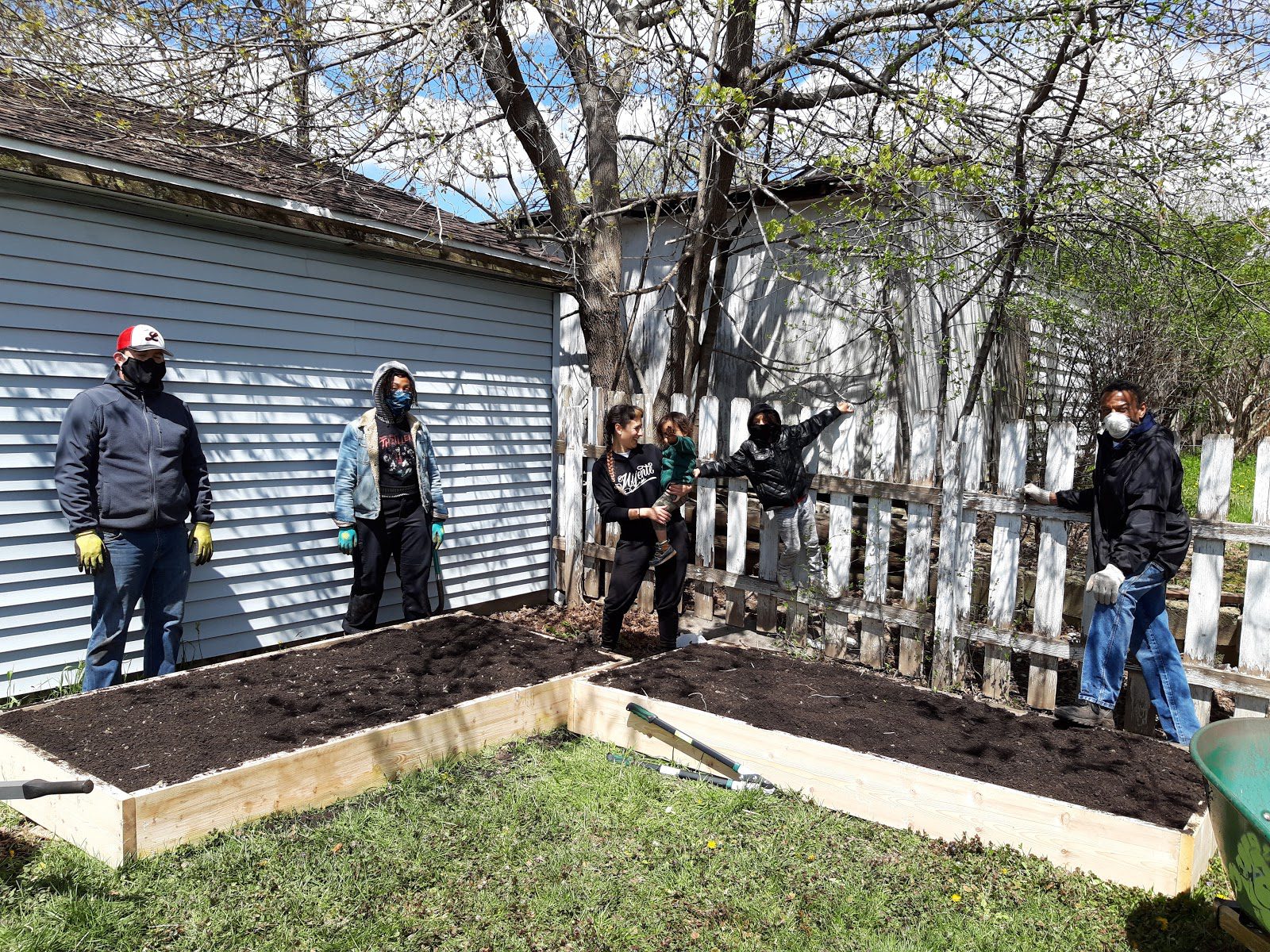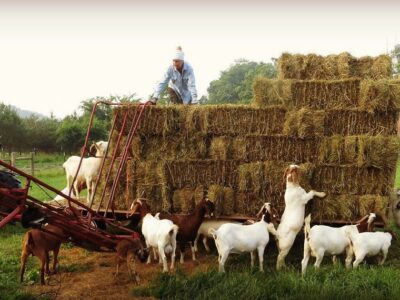“Anywhere we can put a garden, we will build one.” That’s what Christine Kuhn, Executive Director of Victory Garden Initiative, told CNN, and she’s not exaggerating. This year, the Wisconsin non-profit installed 500 new raised beds in backyards, alleyways, rooftops, and vacant lots, bringing their total to 5,000 in the twelve years since they launched the Great Milwaukee Victory Garden Blitz, now the nation’s largest garden-building event. Victory Garden Initiative (VGI) was founded on the belief that “every person, in every household, can connect to their food source through the act of growing it.” Drawing inspiration from the Victory Garden Initiative of World Wars I and II when Americans joined in a collective effort to conserve resources by growing food in yards, parks, and public spaces, the present-day VGI builds resilient communities to support food security and strong local economies to weather good times and bad.
The Initiative is all about empowerment, teaching everyone from kids to grownups how to be their own vegetable gardeners. Providing seeds, compost, beds, tools, education, and mentorship to grow food anywhere, VGI states: “no piece of earth should be overlooked.” From their 1.5 acres urban farm in the Harambee neighborhood of Milwaukee, Victory Garden Initiative hosts a cornucopia of delights, including their pay-what-you-can weekly roadside farmstand and free community u-pick area, along with several programs including the Food Leader certificate program, which has trained 67 leaders. Their programming now extends to sister cities of Green Bay, Wisconsin, and Berea, Kentucky. The YEP! Youth Education Program serves over 400 youth from area schools, daycares, and scout clubs with year-round, hands-on opportunities including after-school garden clubs, Summer AgriCorps, farm field trips, and Earn & Learn programs. As students learn to grow their own food, they discover intricate and vital connections between food, nutrition, gardening, and community, developing valuable team-working skills to use well beyond the garden walls.
The community resilience that VGI has built over the past decade is being tested mightily this year with COVID. In April, Kuhn wrote in a letter to the VGI community: “Wisconsin’s Safer at Home orders only confirm what I know to be true in the fiber of my being: that food production is and always shall be an ‘essential activity.’” VGI got straight to work adapting to the changes of pandemic life, and with a recent Feeding America study projecting that food insecurity during COVID could impact up to 1 in 3 adults and 1 in 2 children in the US, their work could not be more essential.
Local Milwaukee resident Lavonda Wilder heard about the VGI when they hosted a seed giveaway last spring, allowing folks to sift compost and take starter bags for their own garden. Wilder told CNN that quarantine made it difficult to go to the store safely, so when VGI offered a way to grow your own food, she decided to go for it. It quickly became a family affair, growing a variety of vegetables in raised beds that VGI installed. Lavonda’s mother Lanelle said, “I’m already contemplating next year. I feel like it’s brought our family closer together. It’s empowered us. We’re not going back and forth to stores anymore.” “And it’s therapeutic,” her daughter interjects. “You’re watching life happen. Picking the greens, growing a tomato sprout, and knowing they started literally from nothing. They started from my son sifting compost, and now we’re growing okra and kale and lettuce. We did that.”
Kuhn said they’ve had more families reach out this year than ever before. For those who don’t have their own gardens or one of VGI’s raised beds, the farm is open, and all are welcome. This summer, they moved from their pay-what-you-can model to an entirely free enterprise. “We live a life of abundance,” said a recent social media invitation to stop by for some beautiful Victory Garden produce. In times like these, words like that go a long way.
While growing and giving an abundance means more work for the VGI crew, with interns sent home and their official volunteer program suspended due to COVID, they’re still making it happen. Farm Manager Aaron Wynn told NPR he’s glad to see more neighbors stopping by the garden to get what they need for supper and coming back the next day for more. “That’s the way it should be,” he says. “And we’d like to get it into everyone’s backyard as well. But this is here, come see it, treat it like it’s yours, and spread that sort of idea.”
That sort of idea is right in line with the Victory Garden slogan: “This is a grassroots movement. Move grass. Grow food.” And when the cold Wisconsin snow covers the ground, they’ll be ready for that too. The Victory Garden staff is currently transforming summer’s bounty into rich pesto, bright marinara, Lacto-fermented hot sauce, jars of Asian pears and stewed tomatoes, food to last the winter. But it’s not too cold yet, and weekends through October 31, VGI is inviting elementary school youth to spend a day on the farm, capped at groups of ten to practice safe social distancing. The invitation reads: “get outside, get dirty, and grow knowledge.”





 Copyright
2024
Root and Vine
Copyright
2024
Root and Vine